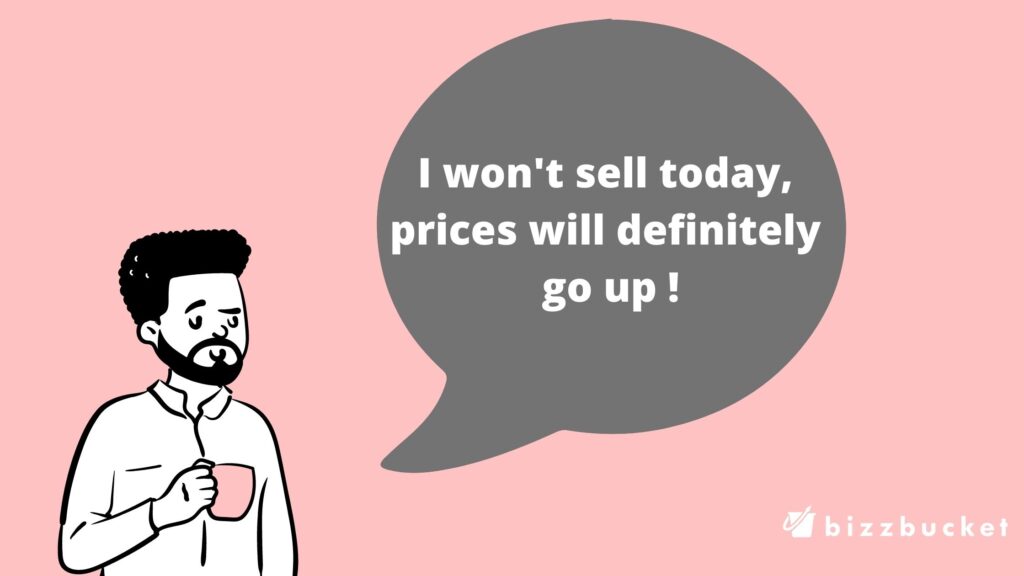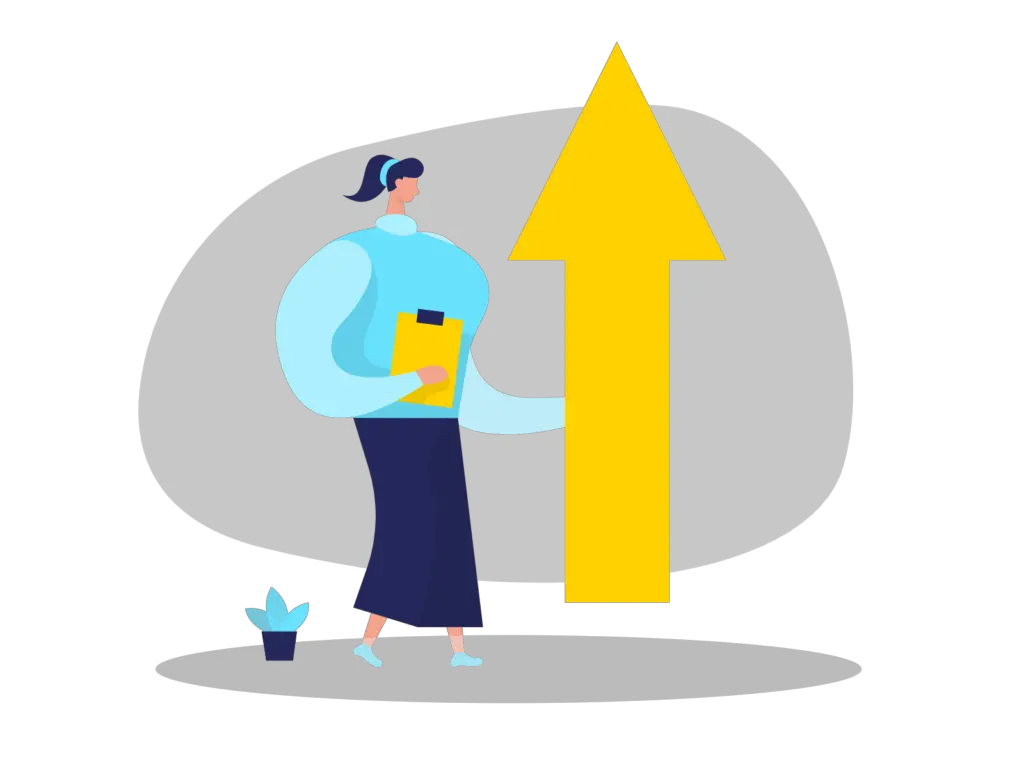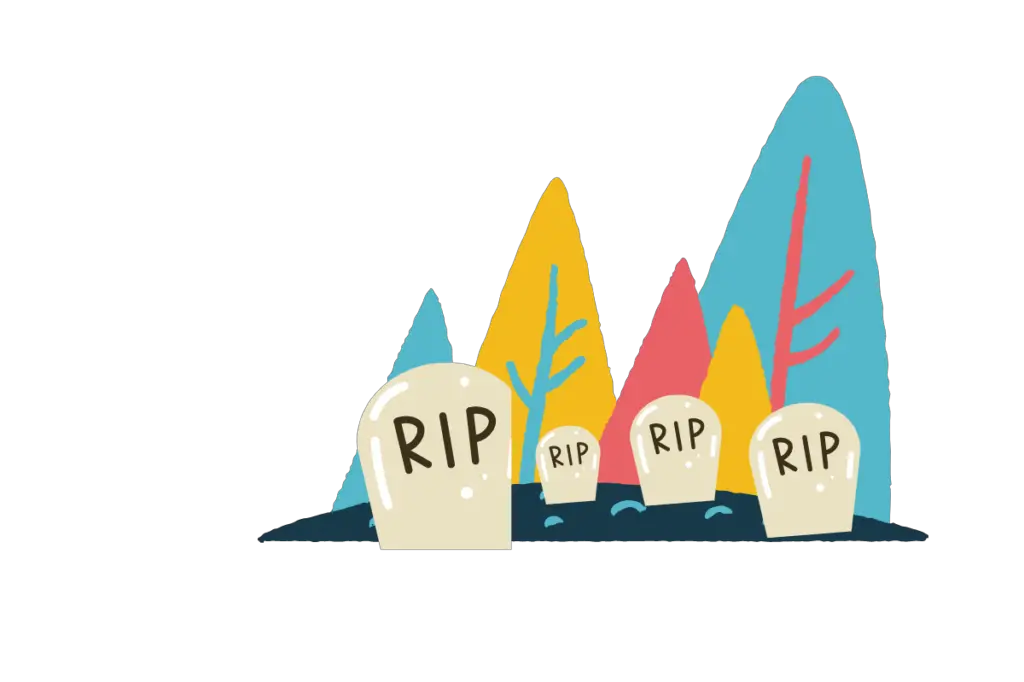Everyone likes to think that they are rational and logical, but everyone is prone to making decisions driven by misconceptions, fear, and pride. The reason is pretty simple, it feels good to win, and losing doesn’t feel good at all.
Take an example of an investor, John, who has shares of company X that have plunged low and shares of company Y that have risen in value. Under these circumstances, if John was to sell his shares, which shares do you think he will do? Just like most people, he will sell his stocks of X and retain Y. Now how is this wrong, you ask, let us see how:
Index:
What is the Disposition effect?
The disposition effect is a tendency amongst individuals to sell assets or similar objects that have made financial gains or advancements. Whereas if an asset or similar object has lost value, we tend to retain them. The logic is simple, we are driven to sell our superior or beneficial investment to ensure a profit, but we are hesitant to sell losing investments hoping that they will turn into profit in the future.
Therefore simply put, the disposition effect is a person’s enthusiasm to sell profitable assets to make a profit and reluctance to sell assets that have lost value. This is often associated with loss aversion and the tendency to avoid decisions that may turn out to be wrong.

Why does the Disposition effect happen?
The reasons behind the disposition effect are the basic concepts at the foundation of our behavior. Let us understand them:
- The Prospect theory and the idea of loss aversion:
While most believe that when faced with risk or uncertainty, rational people will make decisions based on the choice that offers them the highest amount of satisfaction. This is the Utility theory.
However, Kahneman and Tversky came up with a new perspective, an alternative decision-making mechanism where, when a choice has to be made in situations of risk or uncertainty, a person would instead make an unexpected choice rather than deal with the loss.
This is because we are risk-averse and resist realizing our losses. Therefore we hold on to potential losses, at the risk of losing more money in the hopes of a turn of events to cause a profit.
- Mental Accounting:
We, humans, have an intangible mental account of our assets and finances. This mental account allows us to view and assess each investment or asset in isolation from others and make a decision on it.
Additionally, since we tend to attach emotions to our investments and assets, mental accounts can lead to irrational decision-making. Due to mental accounting, we are more likely to hold on to our losses than we should.
- Fear of regret:
As humans, we are scared to face the fact that we made a wrong decision. Our pride and overconfidence in our abilities make the fear of regret very dominating. The fear of regret leads to various anxieties that further contribute to the disposition effect.
What if selling this winner stock takes away any future profit? Or, if I don’t sell this asset right now, will the price take off in the future? This is how the fear of regret contributes to the disposition effect.
What are its effects? How does it impact business?
The disposition effect has many consequences and effects that can lead to many servers consequences. This effect can not only lead to financial instability and losses at an individual level but also affect a business and people associated with it too.
Therefore we must understand that letting go of our losses and holding on to wins can lead to more far-reaching profits and assure more stability.
- Incorrect assessment:
When we fall for the disposition effect, we look at investments individually due to our mental accounts and do not see the larger picture. This way, we are not Ian a position to assess and understand the situation properly.
Additionally, for any new or upcoming business, it is not advisable to view assets and investments in isolation because it leads to a faulty and inaccurate understanding of things and circumstances.
- Wrong decisions:
Often, when we are exposed to the disposition effect, we are quick to let go of our winning assets and investments, that we often overlook the fact that they can lead to future profits as well. And maybe holding on to them will allow us to make a profit is far more than the amount of gain we are making currently.
Therefore selling off a profitable asset can lead to missing an opportunity for a substantial profit in the future.
- Tendency to hold on to losses for far too long:
As per the basic premise, the disposition makes us hold on to our losses for a longer time than we should. In the hopes thatchy may lead to a profit in the future, we hold on to assets and investments that will not return any profit; moreover, there is a possibility of a greater loss.
- Impact on working staff:
The disposition effect holds true for many aspects of the business, including the human resources involved. There can be instances where you have employees in your office and unit who are not very efficient and do not provide the results that you seek, yet you hold onto them thinking they will learn and do better in the future.
This leads to a situation where you are holding on to incapable people when you can hire more effective and capable people to work for you.
How can we avoid it?
Now that we have seen how the disposition effect affects us, it is important to understand how to avoid it. So, in order to stop making poor decisions, we need to stop selling off our winning assets and must not hold our losing assets longer than we should have. It is easier said than done, but here are a few steps to avoid this cognitive bias:
1. Step viewing assets and investment sin isolation: when making decisions, try to see the complete picture, do not isolate assets from each other. As it is only via proper reasoning and understanding of the financial and other aspects of the business that we can make the right decision.
2. Seek the opinions of industry experts and professionals when faced with Delia to make a better decision than relying on your own instincts, as there is a chance your decision may be biased due to other factors.
A final word:
The disposition effect is not something that affects investors or stockholders. It is a tendency that is found in every human and is rooted in our system. Our pride, our inability to face regrets, and a fear of loss make us do things that may have negative consequences on our business and stability in the future.
Therefore, it is important that we cut loose our losses and hold on to our gains.
Do Share Your Thoughts:
Do tell us all your thoughts in the comments section below, we look forward to reading all the comments in the section below.
Also, do check useful Startup Resources and Tools below and do join our newsletter 📰 for free for more interesting Business Case Studies 💰, Startup Insights 🚀, and Startup founders podcast 🎙️ delivered to your inbox every Sunday morning.
Do follow us:
Related Articles:
- What is the Availability Heuristic and how does it impacts your business?
- What is a Representative heuristic and how does it impacts your business?
- Status Quo Bias: How it impacts your business?
- What is Sunk Cost Fallacy and how does it impact your business?
- Licensing effect: How it impact businesses?
- Halo effect: Why it matters in business?
- Fundamental Attribution Error: Why it matters in business?
What is Disposition effect?
The disposition effect is a tendency amongst individuals to sell assets or similar objects that have made financial gains or advancements. Whereas if an asset or similar object has lost value, we tend to retain them.
Whats the example of Disposition effect?
Take an example of an investor, John, who has shares of company X that have plunged low and shares of company Y that have risen in value. Under these circumstances, if John was to sell his shares, which shares do you think he will do? Just like most people, he will sell his stocks of X and retain Y.



